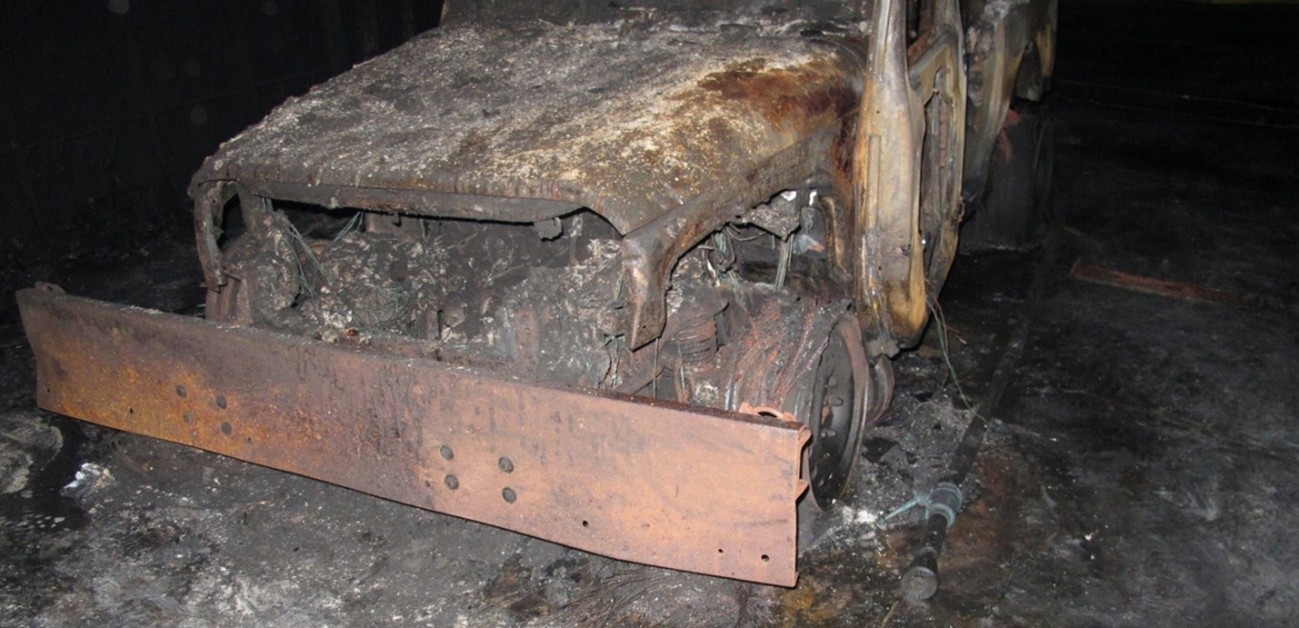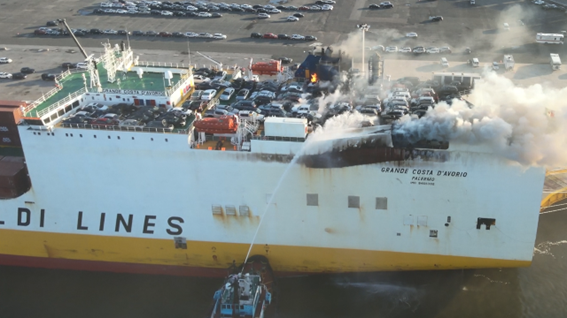Safety Alert: Report on fatal fire on Grande Costa D’avorio in port – 2023

| The Grande Costa D’Avorio was being loaded with used vehicles at Port Newark on July 5, 2023. Non-running vehicles were pushed onto the vessel by a passenger vehicle which had been retrofitted with a steel front bumper/push bar. |
| During the operation the pusher vehicle transmission fluid overheated, boiled over and ignited on a hot engine surface. Attempts to control the fire with portable extinguishers were unsuccessful. The vessel’s carbon dioxide extinguishing system was deployed. However, the crew were unable to close a large rampway door into the space because the door control panel was located inside the fire protection zone (where the carbon dioxide would be released). The lack of operating controls on the outside of the door prevented the crew from safely closing the door and directly led to the ineffectiveness of the fire extinguishing system, contributing to the fire’s duration and severity. |
| Tragically, two land-based firefighters died while attempting to put out the fire. Six additional emergency responders were injured during the firefighting and rescue operations. |

|
||
|
||
|
||
|
||
LINK TO REPORT CLICK HERE |

Caption: Container Vessel Grande Costa D’Avorio during the fire (Source: NTSB)
